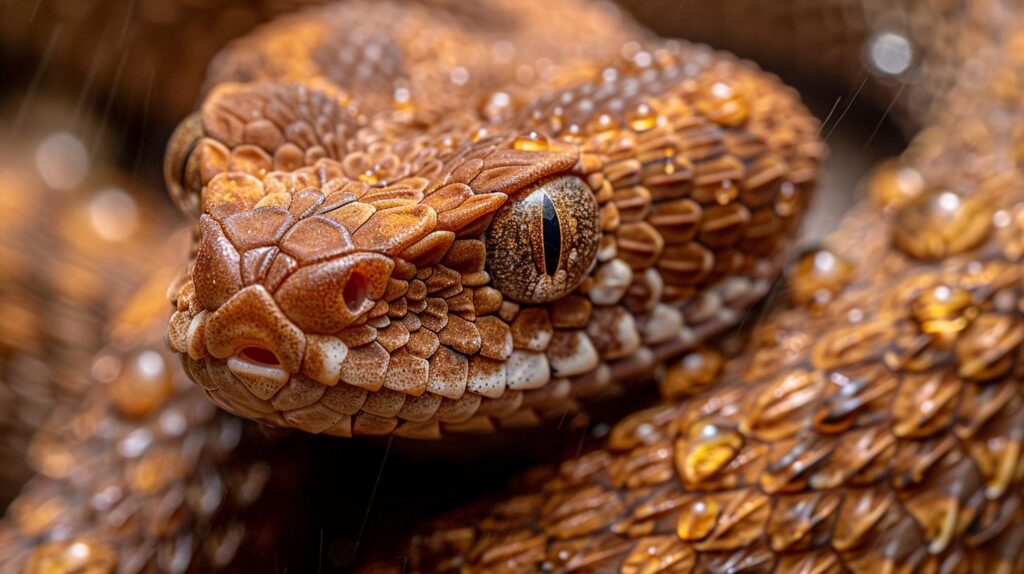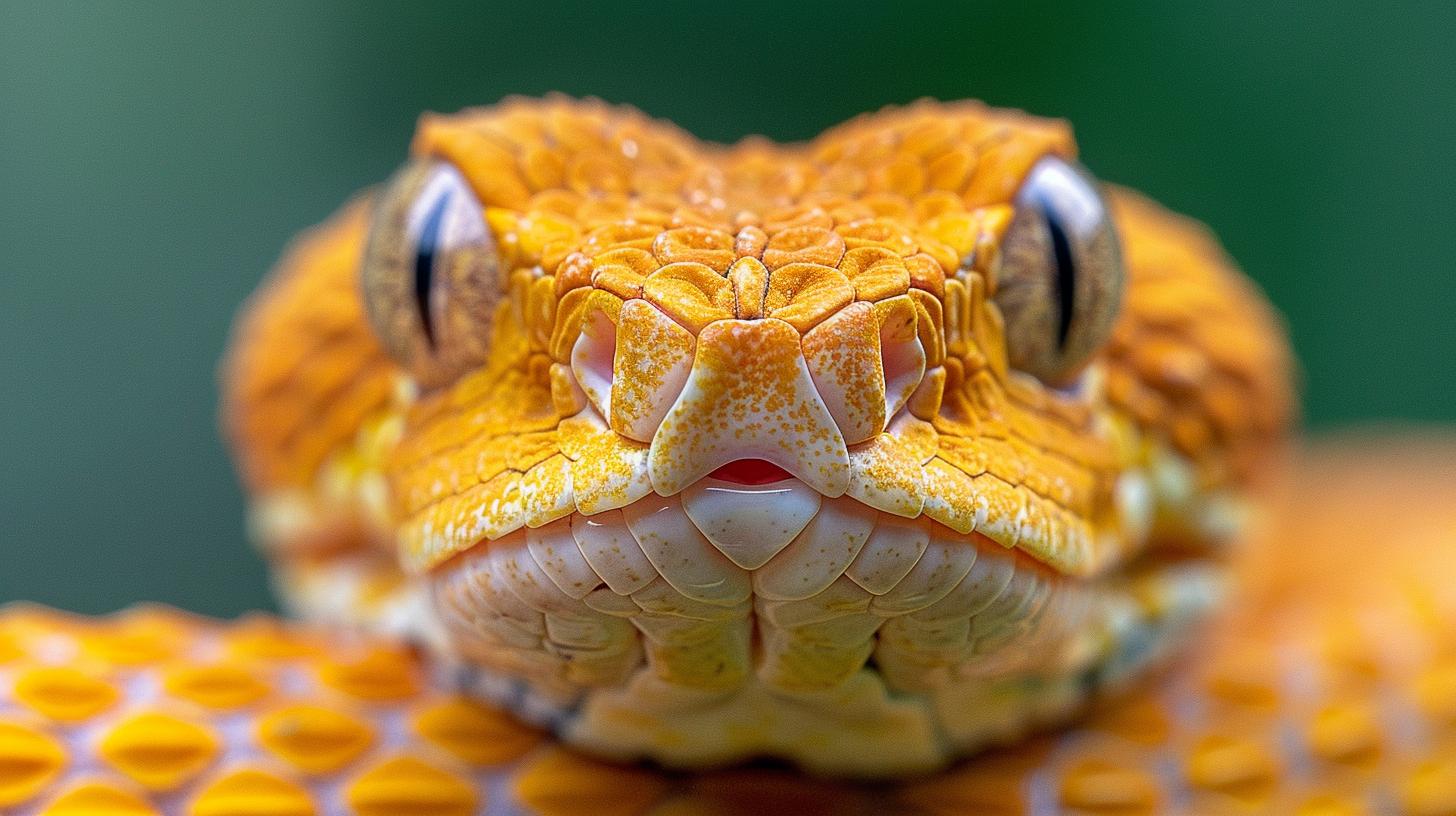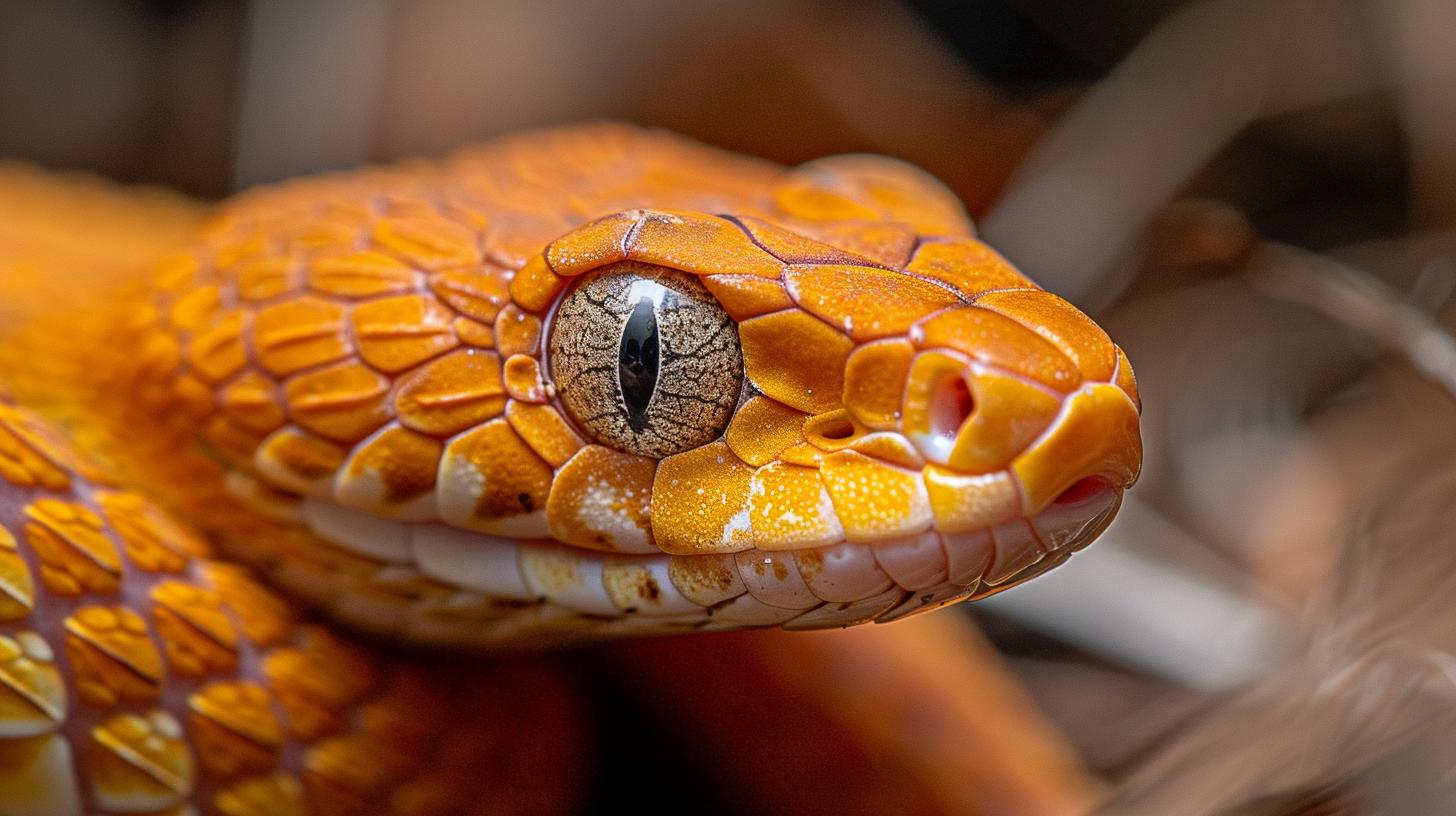Top Vet-Approved Diets for Your Pet Snake's Health

Understanding Your Snake’s Nutritional Needs
Ensuring your slithering companion thrives begins with understanding and implementing vet-approved snake diets tailored to their specific nutritional needs. Unlike other pets, snakes have unique dietary requirements that play a pivotal role in their health and longevity. This article embarks on a journey into the intricate world of snake nutrition, unraveling why a species-appropriate diet is not just an option but a necessity for these fascinating reptiles.
Snakes are unlike any other pet when it comes to feeding; they don't do well with generic pet food or table scraps. Their biology demands a precise balance of nutrients, closely mimicking what they would consume in their natural habitat. The first step in ensuring your pet snake remains healthy and vigorous is gaining an understanding of their distinct nutritional needs.
This understanding sets the foundation for adopting a diet plan that promotes optimal health without compromising safety. Vet-approved diets come into play here, offering peace of mind to owners by ensuring their beloved serpent receives all necessary nutrients without the risks associated with improper feeding practices.
The significance of consulting with a veterinarian cannot be overstated when it comes to formulating an appropriate diet for your snake. Veterinarians bring specialized knowledge about various snake species and their dietary requirements, helping to prevent common issues such as malnutrition and obesity.
Through vet consultations, owners can establish a nutritious feeding regimen that adheres to vet-approved standards, significantly reducing the likelihood of nutritional deficiencies and related health complications. It's this expert approval that guides owners towards making informed decisions about their pet's diet, emphasizing safety, balance, and overall health.
Diving deeper into the realm of snake nutrition, it becomes evident that one size does not fit all. Different snake species necessitate different diets, with some requiring strictly carnivorous meals while others may thrive on an omnivorous menu.
Understanding these nuances is crucial in selecting vet-recommended foods that cater specifically to your snake's dietary needs. Whether you're opting for live prey or considering frozen/thawed options, the goal remains consistent-to offer meals that are as close as possible to what snakes would naturally hunt and consume in the wild, guided by vet-approved practices to ensure every meal contributes positively to your snake's health ecosystem.
The Importance of Vet-Approved Snake Diets
When it comes to the health and longevity of pet snakes, the role of a vet-approved diet cannot be overstated. Snakes possess unique nutritional requirements that significantly diverge from other common pets like dogs or cats. This distinct difference underscores the necessity for species-specific diets that cater to their natural predatory instincts and dietary preferences.
Moreover, a vet-approved diet ensures that these carnivorous companions receive all the essential nutrients without any harmful ingredients or supplements that might inadvertently cause more harm than good. Consulting with a veterinarian to establish such a diet is not just about fulfilling basic nutritional needs; it's about crafting a tailored feeding plan that promotes optimal health, vitality, and well-being in your reptilian pet.
The importance of aligning your snake's diet with professional veterinary advice stems from several critical reasons. Firstly, vet-approved snake diets serve as a cornerstone in preventing common health issues related to malnutrition or improper feeding practices. Snakes are prone to specific deficiencies and ailments if their diet lacks vital components or includes unsuitable items.
By adhering to vet-recommended diets, owners can sidestep potential health pitfalls that could lead to serious complications down the line. Secondly, not all snakes have the same dietary needs; what works for one species may prove detrimental to another. Vets can provide indispensable guidance on what specific foods and feeding frequencies are best suited for your snake's species, age, size, and overall health condition.
Navigating Through Nutritional Challenges
A significant challenge many snake owners face is striking the right balance between variety and nutritional completeness in their pet's diet. While some might lean towards convenience by offering only one type of prey item, this practice can lead to nutritional gaps over time.
A vet-approved diet ensures diversity in food offerings while maintaining a balanced intake of proteins, fats, vitamins, and minerals critical for your snake's development and energy levels. It emphasizes not just the 'what' but also the 'how' aspects of feeding - shedding light on proper prey sizes relative to the snake's girth, as well as safe handling procedures for both live and frozen/thawed options.
Vetting Your Food Sources
Another aspect where veterinary insight proves invaluable is in choosing reliable food sources for your pet snake. The quality of prey-whether mice, rats, or other species-has direct implications on your snake's health. Contaminated or poor-quality feeders can introduce parasites or diseases into your pet's system.
Vets often recommend reputable suppliers of live or frozen feeders that adhere to high standards of cleanliness and nutrition content. Following these guidelines helps ensure that your snake not only enjoys its meals but also derives maximum benefit from them without any adverse effects.
In essence, integrating vet-approved diets into your snake care routine is pivotal for fostering a healthy environment where these fascinating creatures can thrive. These expert recommendations form a pathway towards responsible snake ownership grounded in knowledge and attentive care practices catering specifically to their unique dietary requirements.

Types of Vet-Approved Diets for Different Snake Species
When considering the nutritional health of pet snakes, understanding that one size does not fit all is crucial. Different snake species have varying dietary requirements, underlining the importance of tailoring their diets to meet these needs specifically. This personalized approach ensures that each snake receives the right balance of nutrients to thrive in captivity. As responsible pet owners, turning to vet-approved snake diets is a step towards guaranteeing our slithery friends lead long and healthy lives.
Finding the Right Fit for Carnivorous Snakes
For carnivorous snakes, such as the popular ball python or the corn snake, a diet primarily consisting of rodents like mice or rats is commonly recommended. However, it's essential to note that vet-approved dietary plans go beyond merely suggesting any rodent meal.
Factors like the size, frequency of feeding, and whether the prey should be offered alive or frozen/thawed are meticulously considered to mimic natural feeding behaviors while prioritizing safety and nutritional value. Some carnivorous snake diets might also include small birds or eggs as part of a diversification strategy to ensure a broader range of nutrients is provided.
Dietary Needs of Omnivorous Snake Species
On the other hand, omnivorous snakes-those which can consume a variety of foods including plants and animals-require an even more carefully balanced diet. The garter snake serves as an excellent example with a diet in captivity that can include earthworms, amphibians, fish, and sometimes specific vegetation or commercially prepared diets designed for variety and completeness.
Adhering to vet-approved guidelines ensures these diverse dietary components supply all necessary vitamins and minerals while preventing potential digestive issues or nutrient imbalances.
Incorporating vet-approved snake diets into your pet's routine plays an indispensable role in preventing many common health issues related to improper nutrition. These may include metabolic bone disease from calcium deficiencies, obesity from overfeeding certain types of prey, or vitamin A toxicity - conditions that are avoidable with professional guidance.
By understanding our pets' species-specific needs and consulting with veterinarians experienced in reptile care, we can create optimally balanced feeding regimens that promote longevity and well-being for our serpentine companions.
Feeding Your Snake
When diving into the world of *vet-approved snake diets*, one cannot underestimate the significance of choosing between live and frozen/thawed prey. This decision not only impacts the nutritional value received by your snake but also pertains to safety concerns for both your pet and its meal. Understanding these options is paramount to aligning with vet-recommended practices for feeding snakes.
Opting for frozen/thawed prey stands out as a widely endorsed method by veterinarians, primarily due to its convenience and safety profile. Here's a breakdown of key advantages:
- Safety: Frozen/thawed eliminates the risk of live prey injuring your snake during a feeding struggle.
- Disease Control: Freezing prey can kill off parasites and pathogens that might otherwise infect your reptile friend.
- Convenience: Bulk purchasing and storage of frozen prey ensure a readily available food supply without frequent trips to the pet store.
However, transitioning from live to frozen/thawed meals may require patience and technique, given that some snakes exhibit reluctance towards dead prey initially. Techniques such as gently warming the thawed animal or simulating movement can entice hesitant snakes, making this transition smoother over time.
Conversely, offering live prey posits an undeniable natural appeal, possibly stimulating the snake's hunting instincts more authentically. Despite this perceived benefit, it's important to note that vets typically reserve recommending live feedings for specific situations where a snake vehemently refuses frozen options or under direct supervision to mitigate risks.
In light of these considerations, investing in *vet-approved snake diets* heavily leans towards incorporating frozen/thawed prey into your feeding regimen. This choice not only aligns with promoting optimal health outcomes for your pet but also supports ethical feeding practices by minimizing stress and potential harm involved in live feedings.
As we progress into understanding how supplements and vitamins further enhance your snake's diet, reflecting on these feeding methodologies underscores their foundational role in maintaining a balanced and nutritious lifestyle for our slithery companions. Steering clear of common dietary mistakes starts with adopting appropriate feeding strategies tailored to each individual snake's needs and preferences, paving the way towards their thriving well-being within our care.
Supplements and Vitamins for Optimum Health
Understanding the role of supplements and vitamins in your snake's diet is essential for their overall health. While most *vet-approved snake diets* aim to provide comprehensive nutrition, certain situations may call for additional support through supplements. Just like in humans, these dietary additions can help fill any nutritional gaps and ensure that snakes get all they require for a thriving life.
The need for supplements varies greatly among different species of snakes, with the diet playing a significant role. Carnivorous snakes, for instance, might benefit from vitamin and mineral supplements to mimic the nutritional profile they'd naturally obtain from a varied diet in the wild. Vitamins A and D3, along with calcium are common supplemental needs, particularly if the primary diet consists of frozen/thawed prey which might lose some nutrients during storage and thawing processes.
On the other hand, omnivorous snakes might need a more diverse range of vitamins due to their complex dietary habits. It's paramount to work closely with a veterinarian to identify what supplementary needs your specific snake may have.

Incorporating these supplements into your snake's diet requires thoughtful consideration to avoid over-supplementation which could lead to toxicities or imbalances. Here are some general guidelines:
- Consult with a Veterinarian: Before adding any supplements to your pet's diet, it is vital to seek advice from a professional who understands your snake's unique nutritional requirements.
- Quality Matters: Opt for high-quality brands that are specifically designed for reptiles; these products will be more reliably formulated to meet their needs.
- Proper Administration: Follow dosage instructions carefully; over-supplementation can be just as problematic as under-supplementation.
Moreover, understanding when not to use supplements is equally crucial. For snakes on diverse live diets or those consuming specialized *vet-approved snake diets* meticulously designed for their nutritional needs, additional supplementation might be unnecessary or even harmful. Observing and monitoring your pet's health and growth over time can offer valuable insights into how well their dietary needs are being met.
As we continue exploring how best to cater to our slithery companions' health through nutrition, it's vital not directly jumping towards supplementation without identifying an actual need backed by veterinary advice. The focus should first always be on providing a balanced vet-recommended diet that targets the snake's natural dietary needs as closely as possible.
Transitioning towards or incorporating necessary supplements marks an informed step toward ensuring that every meal contributes positively towards achieving optimum health levels synonymous with a long, vibrant life alongside their human caretakers-bridging directly into considerations around habitual feeding practices that align with such tailored dietary plans.
Common Dietary Mistakes and How to Avoid Them
When it comes to maintaining the health of your pet snake, understanding their dietary needs is fundamental. However, even with the best intentions at heart, snake owners can inadvertently make dietary mistakes that may compromise their pet's well-being.
Identifying these common errors and learning how to avoid them is key in fostering a nurturing environment for your snake. This section will delve into some frequent missteps in snake nutrition and offer advice on how to sidestep these pitfalls to ensure your slithery friend thrives.
One pervasive mistake is not providing a diet that mimics what snakes would naturally consume in the wild. Each snake species has distinct dietary preferences, encompassing carnivorous diets for some and more omnivorous options for others. Ignoring these specific requirements can lead to nutritional imbalances or health issues over time.
Owners should opt for vet-approved snake diets, which are specially formulated considering the unique needs of different species. These diets help prevent nutritional deficiencies, supporting optimal growth and vitality in snakes.
Another typical error is incorrect feeding frequency; both overfeeding and underfeeding come with their own set of problems. Overfeeding can lead to obesity and associated health issues, while underfeeding might cause malnutrition and weakened immune systems.
The size and species of your snake should dictate the quantity of food it needs as well as how often it should be fed, with juvenile snakes generally requiring more frequent meals than adults. Consulting with a veterinarian can provide invaluable insights into tailoring a feeding schedule that aligns with the age, size, and species of your snake, promoting its best possible health.
By recognizing these common dietary mistakes and adhering to guidelines on suitable feeding practices and vet-approved diets, snake owners can significantly enhance their pets' overall health and longevity. Education on the nutritional needs of your specific type of snake combined with professional advice makes all the difference in avoiding these errors. Remember, every aspect of caring for your pet contributes to its quality of life; hence, making informed decisions about its diet is paramount.
Transitioning to a Vet-Approved Diet
In conclusion, transitioning your pet snake to a vet-approved diet is not just a change; it's a step forward towards ensuring their long-term health and vitality. Understanding the unique nutritional needs of snakes is fundamental, something that we've journeyed through together from their species-specific requirements to the importance of vet-recommended diets.
These diets are imperative for avoiding nutritional deficiencies and other health problems that could arise from improper feeding. Armed with knowledge on the various vet-approved snake diets available for different species, and weighing the benefits of live versus frozen/thawed prey, pet owners are better equipped to make informed decisions about their snake's nutrition.
One cannot overlook the significance of supplements and vitamins in these specialized diets. However, like all aspects of your snake's diet, these should be incorporated following professional veterinary advice. This ensures your slithery friend reaps maximum benefits without any adverse effects. Addressing common dietary mistakes head-on by recognizing and adjusting feeding practices avoids potential pitfalls, setting the stage for a smooth transition to a diet that promotes optimal health.
As you embark on this journey of nutritional excellence for your pet, remember that patience and persistence are key in successfully shifting to vet-approved snake diets. Your dedication to understanding and applying these insights underscores your commitment as a responsible pet owner. If this piece has sparked an interest or left you hungry for more knowledge on pet care, we invite you to delve deeper into our website's rich content repository.
Continue exploring our articles for more expert advice and tips that cater to the diverse needs of all pet owners. Together, let's ensure our pets lead healthy, joyful lives.
Leave a Reply
You must be logged in to post a comment.